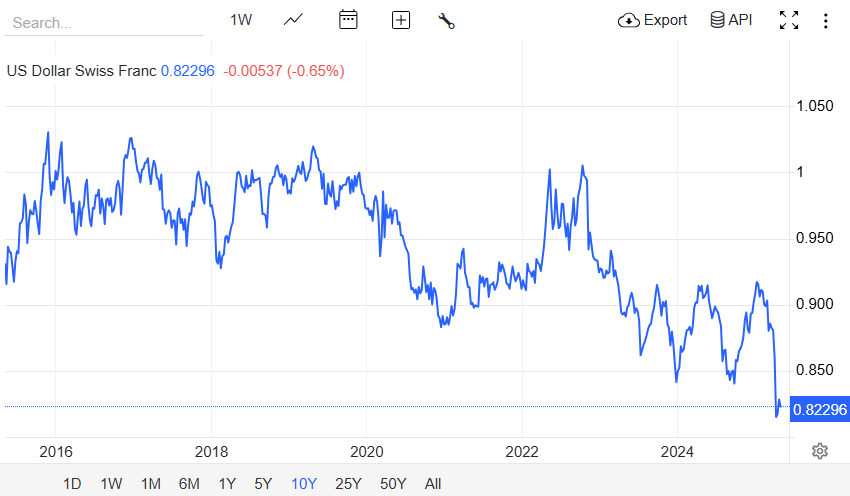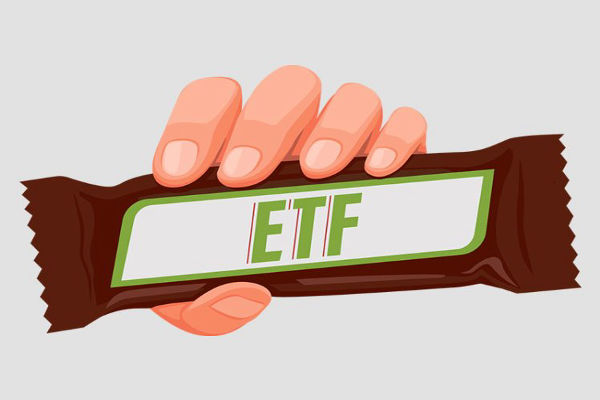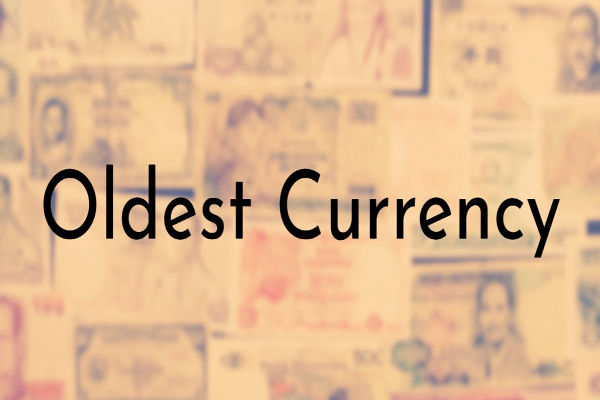The Swiss franc (CHF) has long been regarded as a safe haven, attracting investors during global economic uncertainty. In 2025, the CHF has demonstrated remarkable strength, appreciating approximately 9% against the U.S. dollar in April alone, marking its most monthly gain since the 2008 financial crisis.
In addition, its strength has been particularly notable, with the franc reaching decade-high levels against major currencies like the U.S. dollar and euro in 2025.
This article delves into the factors contributing to the Swiss franc's resilience and explores the implications for investors and the global economy.
Understanding Safe Haven Currencies

Safe haven currencies are those that investors turn to during periods of market volatility and economic uncertainty. These currencies are typically characterised by the following:
Political and Economic Stability: Countries with stable governments and robust economies tend to have currencies that are perceived as safe.
Low Inflation: Currencies from countries with low and predictable inflation rates are more attractive to investors seeking to preserve purchasing power.
Strong Fiscal Policies: Nations with prudent fiscal management and low debt levels instil confidence in their currencies.
The Swiss franc embodies these characteristics, making it a preferred choice for investors seeking safety.
Why Is the Swiss Franc So Strong? 5 Reasons Explained

1) Political and Economic Stability
Switzerland's longstanding political neutrality and stable democratic institutions foster a secure environment for investors. The country's prudent economic policies, low debt-to-GDP ratio (around 38%), and strong fiscal discipline further enhance its appeal.
2) Conservative Monetary Policy
The Swiss National Bank (SNB) is known for its cautious approach to monetary policy. By maintaining low interest rates and intervening in currency markets when necessary, the SNB aims to prevent excessive volatility and ensure price stability.
Interest Rates: The SNB has maintained interest rates that support economic growth while preventing excessive currency appreciation.
Market Interventions: The central bank occasionally intervenes in foreign exchange markets to manage the franc's value, ensuring it remains competitive for exporters.
3) Low Inflation Environment
Switzerland's economy remains one of the most stable globally, characterised by low unemployment, high GDP per capita, and a well-developed banking sector. Inflation has remained subdued, with rates hovering around 0.3%, providing a conducive environment for currency strength.
4) Diversified and Resilient Economy
Beyond its renowned banking sector, Switzerland boasts a diversified economy encompassing manufacturing, pharmaceuticals, and services. This diversification enhances economic resilience and supports the franc's strength.
5) Global Reserve Currency Status
The Swiss franc serves as a reserve currency for central banks worldwide. During global uncertainty, demand for the CHF increases as central banks and investors seek to diversify their holdings and reduce exposure to more volatile currencies.
Trade Tensions: Ongoing trade disputes between major economies, like the U.S. and China, have led investors to seek refuge in stable currencies.
Market Volatility: Fluctuations in global stock markets have prompted a shift towards safer assets, including the Swiss franc.
Implications for Investors
1. Impact on Swiss Exports
A stronger franc makes Swiss goods more expensive for foreign buyers, potentially reducing export demands. This can affect Switzerland's export-driven economy, prompting concerns among businesses and policymakers.
For example, industries such as manufacturing and tourism may face challenges in maintaining competitiveness.
2. Pressure on the Swiss National Bank
The SNB faces challenges in balancing the franc's strength with economic growth:
Interest Rate Adjustments: To mitigate the franc's appreciation, the SNB may consider lowering interest rates, even re-entering negative territory if necessary.
Currency Interventions: The central bank might intervene in currency markets to prevent excessive strengthening that could harm the economy.
3. Global Investment Strategies
For international investors, the franc's strength influences portfolio decisions:
Currency Hedging: Investors may use the franc to hedge against volatility in other currencies.
Asset Allocation: The franc's stability makes Swiss assets attractive, potentially increasing capital inflows into the country.
Conclusion
The Swiss franc's enduring strength in 2025 underscores its status as a safe haven currency. Switzerland's political stability, conservative monetary policy, low inflation, and diversified economy contribute to its appeal.
However, investors should remain vigilant to potential policy responses from the SNB aimed at managing the currency's appreciation and its implications for the Swiss economy.
Disclaimer: This material is for general information purposes only and is not intended as (and should not be considered to be) financial, investment or other advice on which reliance should be placed. No opinion given in the material constitutes a recommendation by EBC or the author that any particular investment, security, transaction or investment strategy is suitable for any specific person.








